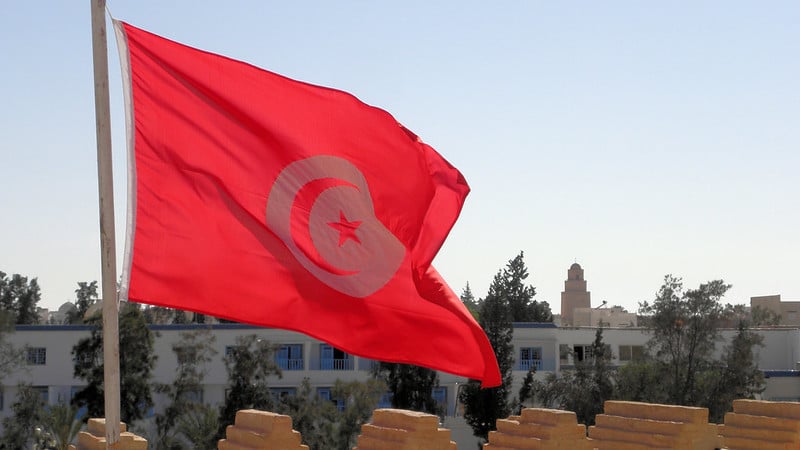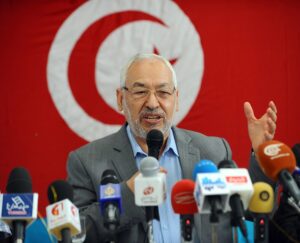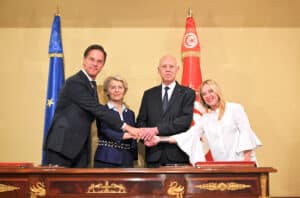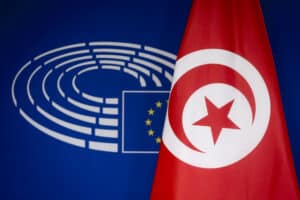On Monday 26th of July, the Tunisian President Kais Saied dismissed Prime Minister Hichem Mechichi and frozen the parliament. The so-called coup came after a day of protest against the government and the biggest party in parliament, the moderate Islamist Ennahda, following a spike in COVID-19 cases and growing anger over chronic political dysfunction, economic and social turmoil.
The legitimacy of Saied’s decision depends on a generous reading of Article 80 in Tunisia’s constitution, which allows for the President to seize power temporarily in an emergency. However, the article also says the parliament speaker and prime minister must be consulted before any emergency powers are invoked. Such a consultation did not take place, according to the Parliament Speaker Rachid Channouchi, who heads Ennahda. He and other opponents in and outside the parliament labelled Saied’s actions “a coup against the revolution and constitution. Thus, the lone democracy that emerged from the Arab Spring in 2011 is now under threat
Reactions from the international community
Global powers have adopted a cautious approach so far. White House Press Secretary Jen Psaki said the United States was “concerned” but was waiting for a State Department determination on whether a coup had taken place. Later on Monday, U.S. Secretary of State Antony Blinken spoke with Saied. A readout said Blinken encouraged Saied to “adhere to the principles of democracy and human rights” in Tunisia. The EU response was similarly vague, urging all sides to “restore order and return to dialogue.”
Civil society waits
The Tunisian General Labor Union, the million-member body also known as UGTT has offered a measured reaction, calling for the constitution to be upheld and for “the continuation of the democratic path.” The UGTT has in recent years been instrumental in cooling tensions in Tunisia and was part of a group of civil society organizations awarded the Nobel Peace Prize in 2015 for their efforts.
What is next?
After dismissing the Prime Minister, Saied also dismissed Defense Minister Ibrahim Bartaji and Hasna ben Slimane, the acting justice minister. Besides that, a curfew has been implemented and gatherings of large groups are prohibited.
Thus, many questions remain. Was this a power grab by the president or a temporary move to get the country back on track? And will his political opponents mobilize their won support on the streets? If so, to what end? Key to how all this plays out will be how quickly a new PM is appointed and restrictions are loosed.
Sources: BBC, Aljazeera, Reuters, FRANCE24, CNN, Foreign policy
Photo: Flickr



